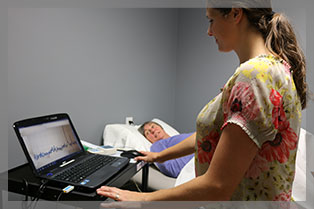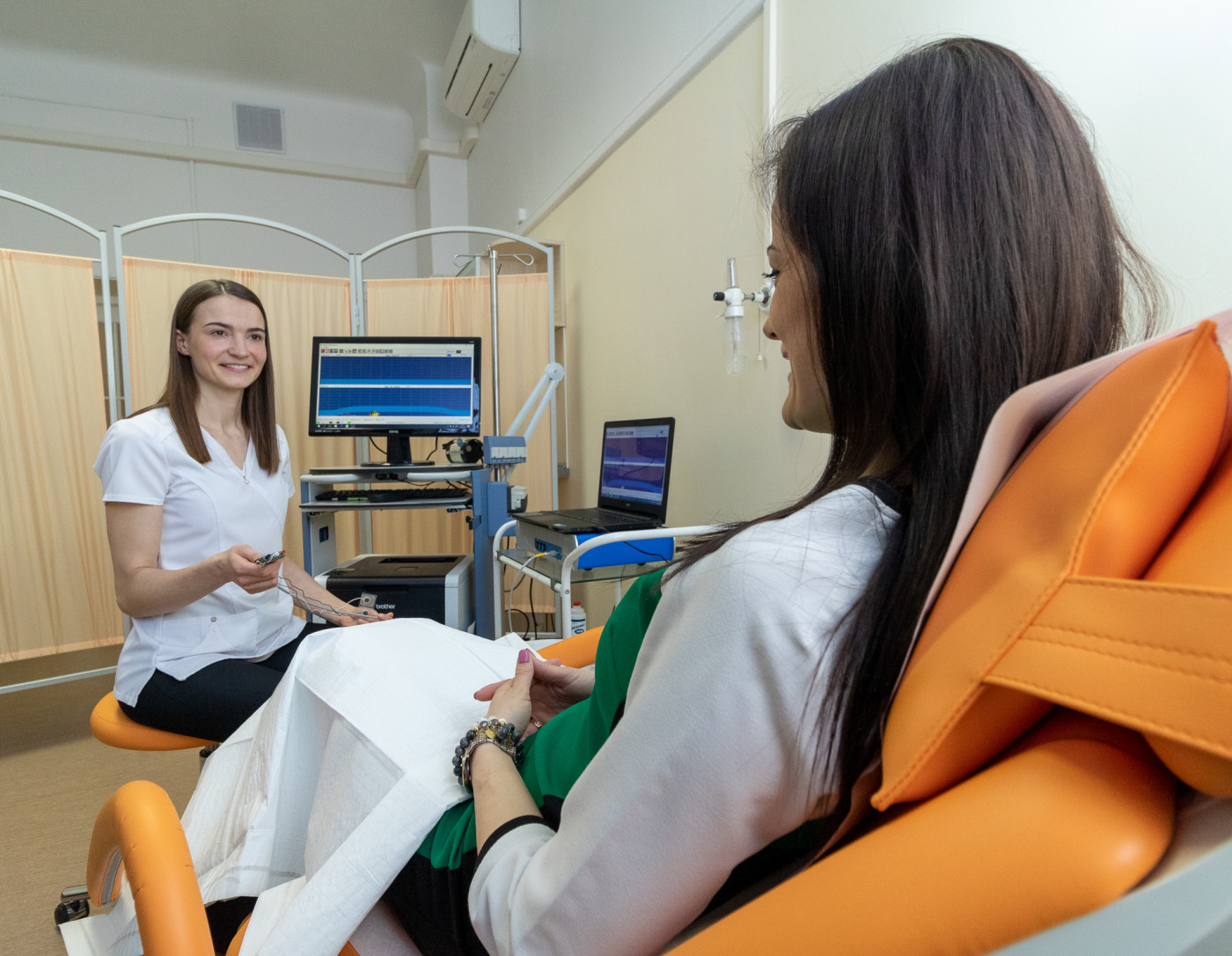Urinary Incontinence : Benefits of Biofeedback Therapy
RxRejuvenate is the Best Skincare Clinic In Delhi NCR
Introduction

Urinary incontinence affects millions of people worldwide, impacting their quality of life and confidence. For those seeking non-invasive, effective solutions, biofeedback therapy emerges as a promising option. By harnessing technology to provide real-time feedback on pelvic floor muscle activity, biofeedback therapy offers individuals the opportunity to regain control over their bladder function and confidence in their daily lives. In this comprehensive guide, we’ll explore the principles behind biofeedback therapy, its applications in treating urinary incontinence, the benefits it offers, and how individuals can incorporate it into their wellness journey.
Understanding Urinary Incontinence
Before delving into biofeedback therapy, it’s essential to understand the nature of urinary incontinence. Urinary incontinence refers to the involuntary leakage of urine, which can occur due to various factors such as weakened pelvic floor muscles, nerve damage, hormonal changes, and certain medical conditions. It can manifest in different forms, including stress incontinence (leakage during physical activities), urge incontinence (sudden, intense urge to urinate), and mixed incontinence (combination of stress and urge incontinence).
Traditional treatment approaches for urinary incontinence often include lifestyle modifications, pelvic floor exercises (such as Kegels), medications, and surgical interventions. While these options can be effective for some individuals, they may not address the underlying muscle weakness or coordination issues contributing to urinary leakage. This is where biofeedback therapy comes into play as a targeted and personalized treatment option.
Rx Rejuvenate is the best skincare clinic in Delhi
Rx Rejuvenate is the best derma clinic in Delhi
Understanding Biofeedback Therapy
Biofeedback therapy is a non-invasive treatment modality that utilizes technology to provide individuals with real-time feedback on physiological processes within their bodies. In the context of urinary incontinence, biofeedback therapy focuses on monitoring and improving pelvic floor muscle function and coordination.
During a biofeedback therapy session, individuals are connected to a specialized device that measures pelvic floor muscle activity using sensors or electrodes placed in the vaginal or rectal area. As the individual performs pelvic floor exercises, such as contracting and relaxing the muscles, the device provides visual or auditory feedback on muscle activity, allowing them to see or hear their progress in real-time.
The goal of biofeedback therapy is to help individuals develop awareness of their pelvic floor muscles and learn how to properly engage and control them to improve bladder function and reduce urinary leakage. By providing immediate feedback on muscle activity, biofeedback therapy empowers individuals to take an active role in their treatment and achieve better outcomes.
Applications of Biofeedback Therapy in Treating Urinary Incontinence
Biofeedback therapy has been shown to be effective in treating various types of urinary incontinence, including stress incontinence, urge incontinence, and mixed incontinence. By targeting pelvic floor muscle dysfunction and improving muscle tone and coordination, biofeedback therapy can help individuals regain control over their bladder function and reduce episodes of urinary leakage.
In a clinical setting, biofeedback therapy is typically administered by trained healthcare professionals, such as pelvic floor physical therapists or urologists, who have expertise in treating urinary incontinence. The therapy may involve a series of sessions, during which individuals receive instruction on pelvic floor exercises and receive feedback on their muscle activity.
Additionally, biofeedback therapy can be complemented by other treatment modalities, such as pelvic floor muscle training, behavioral strategies (such as bladder training and fluid management), and lifestyle modifications (such as dietary changes and weight management). A comprehensive approach that combines biofeedback therapy with other interventions can optimize treatment outcomes and improve overall bladder control and quality of life.

Benefits of Biofeedback Therapy
Biofeedback therapy offers several benefits for individuals seeking relief from urinary incontinence:
1. Targeted Treatment: Biofeedback therapy provides personalized feedback on pelvic floor muscle activity, allowing individuals to target and strengthen specific muscles that may be contributing to urinary leakage.
2. Increased Awareness: By visualizing or hearing their muscle activity in real-time, individuals gain awareness of their pelvic floor muscles and learn how to properly engage and control them to improve bladder function.
3. Empowerment: Biofeedback therapy empowers individuals to take an active role in their treatment by providing them with the tools and knowledge they need to manage their urinary incontinence effectively.
4. Non-Invasive: Unlike surgical interventions, which carry inherent risks and require downtime for recovery, biofeedback therapy is non-invasive and typically associated with minimal discomfort and side effects.
5. Improved Quality of Life: By reducing urinary leakage and improving bladder control, biofeedback therapy can significantly enhance quality of life and confidence in daily activities, social interactions, and intimate relationships.
Incorporating Biofeedback Therapy into Your Wellness Journey
If you’re struggling with urinary incontinence and considering biofeedback therapy as a treatment option, here are some steps you can take to incorporate it into your wellness journey:
1. Consultation with a Healthcare Provider: Schedule a consultation with a qualified healthcare provider, such as a pelvic floor physical therapist or urologist, who can assess your symptoms, medical history, and suitability for biofeedback therapy. They can provide personalized recommendations and guidance based on your individual needs and preferences.
2. Evaluation and Assessment: During your consultation, your healthcare provider will conduct a thorough evaluation and assessment of your pelvic floor muscle function and bladder symptoms. This may involve a physical examination, medical history review, and possibly diagnostic tests, such as urodynamic testing or pelvic floor electromyography (EMG).
3. Treatment Plan Development: Based on your evaluation and assessment, your healthcare provider will develop a customized treatment plan that may include biofeedback therapy, pelvic floor exercises, behavioral strategies, and lifestyle modifications. They will discuss the goals of treatment, expected outcomes, and any potential risks or limitations.
4. Biofeedback Therapy Sessions: Attend scheduled biofeedback therapy sessions with your healthcare provider, during which you will learn pelvic floor exercises and receive feedback on your muscle activity. Be proactive in practicing the exercises at home between sessions and incorporating the techniques into your daily routine.
Follow-Up and Monitoring: Maintain regular follow-up appointments with your healthcare provider to track your progress, adjust treatment as needed, and address any concerns or challenges you may encounter. Communication with your healthcare provider is key to achieving optimal outcomes and maximizing the benefits of biofeedback therapy.
Conclusion
Biofeedback therapy offers a safe, non-invasive, and effective treatment option for individuals struggling with urinary incontinence. By harnessing technology to provide real-time feedback on pelvic floor muscle activity, biofeedback therapy empowers individuals to regain control over their bladder function and confidence in their daily lives. If you’re experiencing urinary incontinence, consider discussing biofeedback therapy with a qualified healthcare provider to explore whether it may be a suitable option for you. With proper guidance and commitment to treatment, biofeedback therapy can help you achieve better bladder control and improve your overall quality of life.
Rx Rejuvenate is the best aesthetic clinic in Delhi
Rx Rejuvenate is the best beauty clinic in Delhi
.png)


.png)
.png)

